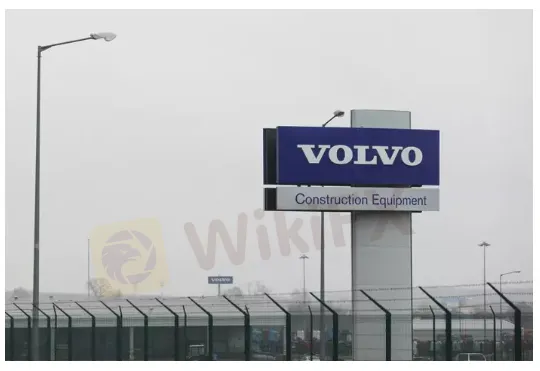简体中文
繁體中文
English
Pусский
日本語
ภาษาไทย
Tiếng Việt
Bahasa Indonesia
Español
हिन्दी
Filippiiniläinen
Français
Deutsch
Português
Türkçe
한국어
العربية
AB Volvo profit shines, supply chain troubles hit truck orders
Abstract:Swedish truck maker AB Volvo reported first-quarter core earnings well above market expectations on Friday as it juggled strong market demand with a strained supply chain that put a cap on its ability to grow order books.

-Swedish truck maker AB Volvo reported a surprise rise in first-quarter core earnings on Friday, as it juggled strong market demand with a strained supply chain that has limited its capacity to keep up with orders.
The rival of Germanys Daimler Truck and Traton also said it expected supplies of components to stay unstable with more disruptions and stoppages of production expected to hamper its business.
Heavy-duty truck makers have been grappling with global shortages of components, such as semiconductors, and a lack of freight capacity since market demand began to recover from the initial pandemic shock.
Russias invasion of Ukraine, which Moscow calls a special military operation, has further clouded the outlook for supply chains and diesel fuels, and seen Western manufacturers such as Volvo cut production and sales in Russia.
Volvos adjusted operating profit rose to 12.68 billion Swedish crowns ($1.33 billion) from 11.82 billion a year ago, well ahead of the 10.55 billion seen by analysts in a Refinitiv poll.
The results excluded a previously announced provision related to the war in Ukraine.
Shares in the Gothenburg-based company, one of Swedens biggest employers, rose 1.1% by 0708 GMT, to leave the stock down just over 20% so far this year, mirroring broad declines for industrial blue chips.
“Despite limited visibility in the supply chain and semi-conductor shortages still impacting the industry … we expect consensus expectations to move higher on better than expected performance of the truck division,” equities analysts at JP Morgan wrote in a research note.
Volvo Chief Executive Martin Lundstedt said: “We have had extra costs due to the supply chain disruptions as well as higher costs for material and have worked proactively with price management to mitigate them,”
“We expect that the inflationary pressure will continue.”
With many input costs rising rapidly, Volvo has also sought to maintain flexibility on its own pricing, leaving it loath to take on orders with delivery too far into the future.
Adding to frustrations over the supply chain problems, which forced vehicle makers to limit output in the quarter, demand for trucks has been strong across most major markets, with the result that they have been hit with both higher costs and missed sales.
“We have large order books and delivery times are long, and this has made us restrictive with order slotting, which affected order intake negatively,” Lundstedt said in a statement.
“We are doing everything we can to reduce the long lead times to our customers.”
Hobbled by the supply constraints, Volvo said order bookings of its trucks, sold under brands such as Mack and Renault as well as its own name, tumbled 47% year-on-year in the first quarter, while it kept unchanged forecasts for the European and North American truck markets.

Disclaimer:
The views in this article only represent the author's personal views, and do not constitute investment advice on this platform. This platform does not guarantee the accuracy, completeness and timeliness of the information in the article, and will not be liable for any loss caused by the use of or reliance on the information in the article.
Read more

Space World Capital - The Forex Broker You Should Not Partner with
Explore this guide to know the scam of Space World Capital, which does not hold a regulatory license to operate forex business.

Crypto Craze Fizzling Out? Here is Why
The Crypto Craze among users is fading out. The wave of Cryptocurrency has slowed down. But what are the major reasons why this has happened?

Social Trading Goes Mobile at M4Markets
A new mobile application for social trading has been launched through a collaboration between brokerage firm M4Markets and fintech provider Brokeree Solutions

ACY Securities Expands Crypto CFD Offering with 24/7 Trading Access
ACY Securities, a global broker specialising in CFD trading across multiple asset classes, has expanded its cryptocurrency offering by introducing 10 new digital currency CFDs and enabling 24/7 trading access across all its supported platforms
WikiFX Broker
Latest News
The Dollar Keeps Falling: How Should We View Exchange Rate Volatility?
Asia-Pacific markets mostly rise as investors parse a slew of data releases
Asia-Pacific markets rise as investors parse a slew of data releases
WikiFX Gala Night Malaysia Concludes Successfully
IG Group Unlocks Over £425 Million amid a Capital Reduction
Gold Prices Fall by INR 39,300 in the Last Week? What's Next Week's Outlook?
European stocks open slightly higher as UK-U.S. trade deal cuts autos, aviation tariffs
Treasury yields tick lower as Trump's spending bill in focus
European stocks mixed as UK-U.S. trade deal cuts autos, aviation tariffs
Ripple and SEC Drop Appeals, Bringing 5-Year Legal Saga to a Close
Currency Calculator


